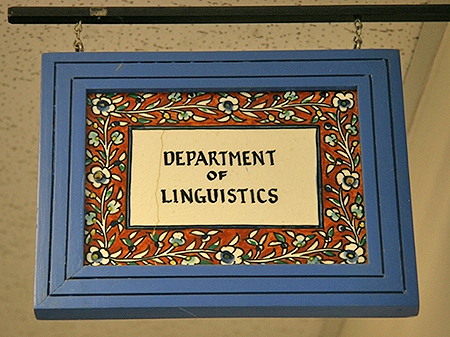
Linguistics ETDs
Publication Date
Fall 12-16-2023
Abstract
Despite presenting challenges for speakers, complex linguistic features such as lexically conditioned inflection (LCI) persist across different languages. LCI forms part of not entirely predictable paradigms which require lexeme-specific knowledge to master. Moreover, LCI remains one of the oldest morphological phenomena in certain languages. Previous research has linked the persistence of such complexity to language-external factors like geographic and social circumstances of speech communities.
This dissertation delves into the question whether language-internal properties are associated with the distribution of inflectional complexity. LCI is compared with other inflectional paradigms across 41 genetically and geographically distant languages. The study shows that LCI is mostly found in phonologically prominent syllables and obligatory paradigms, suggesting that its persistence is attributable to the interaction of different levels of language structure. These findings underscore the relevance for usage-based theories to integrate structural effects into the factors that stabilize morphological complexity.
Project Sponsors
Center for Regional Studies, Graduate Studies
Language
English
Keywords
morphology, phonology, linguistic complexity, typology, stability, functionalism
Document Type
Dissertation
Degree Name
Linguistics
Level of Degree
Doctoral
Department Name
Department of Linguistics
First Committee Member (Chair)
Caroline Smith
Second Committee Member
Kilu von Prince
Third Committee Member
Melvatha Chee
Fourth Committee Member
William Croft
Fifth Committee Member
Melissa Axelrod
Recommended Citation
Denk, Lukas. "Stable complexity: verbal inflection in prominent and frequent environments." (2023). https://digitalrepository.unm.edu/ling_etds/81
